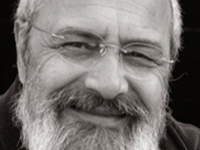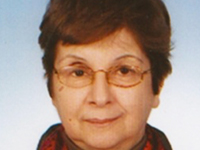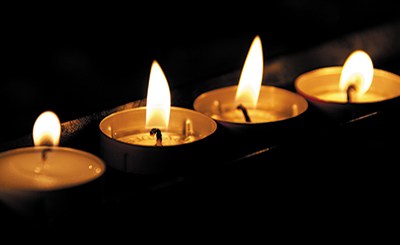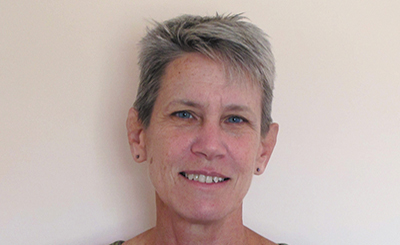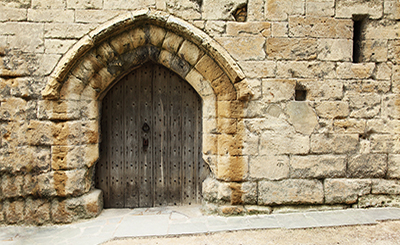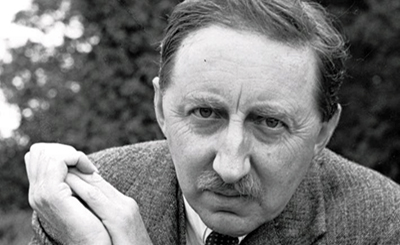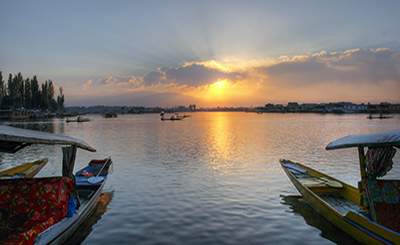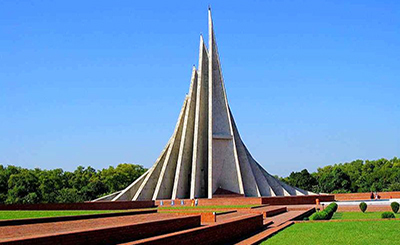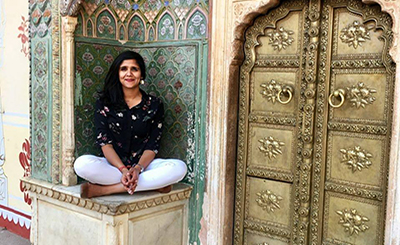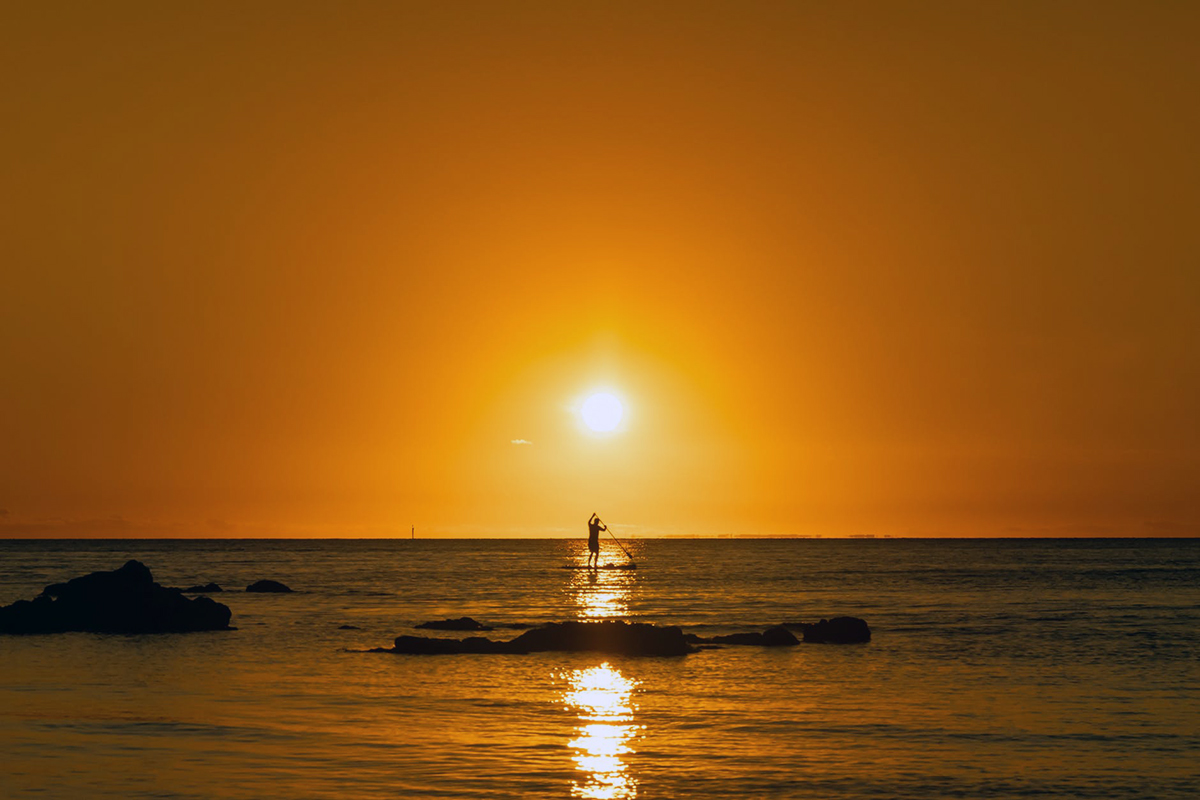
This poem is part of our world poetry special issue, with the focus on Turkey, curated by Ceyda Elgül, an instructor of translation at the Department of Translation and Interpreting Studies, in Istanbul’s BoÄŸaziçi University
Editor’s Note: “No man is an island entire of itself/every man is a piece of the continent, a part of the main...” wrote John Donne, whose death anniversary falls on March 31. However, amid the shared threat of a global pandemic, as we practise social distancing and seek refuge in the self, we may see ourselves as islands unto ourselves, rafting along the sea of life. As reports of people dying of coronavirus around the world come in, all of us at The Punch Magazine feel diminished as we are “involved in mankind”.
COVID-19 destroys lives, but as human race, we have always created what is greater than us — literature. It’s a dark and difficult period in the march of human civilisation. But this is also the time that will produce the best of literature. “What one writer can make in the solitude of one room is something no power can easily destroy,” Salman Rushdie once said. Poets and writers throughout history have always shaped the world, and stopped it from “going to sleep”. Someday, when all this is over, the world may not be the same, and we may have lost millions of our loved ones to the contagion, but, by then, poets and writers who are witness to this moment in history will have created life-affirming literature that will outlive us. We do hope that this phase proves to be just a “short sleep” and that we may soon “wake eternally” and emerge into the light — stronger and well-healed.
Porphyrogennetos by Turkish poet-essayist-novelist Enis Batur (translated by Saliha Paker) is part of our world poetry special issue, with a focus on Turkey, curated by Ceyda Elgül, an instructor of translation at the Department of Translation and Interpreting Studies (DTIS), BoÄŸaziçi University in Bebek (Istanbul). It presents a selection of poems translated during a workshop in Turkey last year.
Curator’s Note: Poetry is generally associated with untranslatability. Poets are assumed to deconstruct and refashion the language, which eventually puts it in a state that cannot be replicated in another language. This portrayal would seemingly suggest that poems are “islands” that have no contact with “other shores”.
In July 2019, a group of professional poets, translators, and scholars from different linguistic and cultural backgrounds gathered at Büyükada, the largest of the nine “Princes’ Islands” in the Sea of Marmara, near Istanbul, to start a series of poetry translation workshops entitled “Island in Translation”. The gathering aimed to celebrate poetry translation as collaborative-creative production. A selection of island poets and/or poems with island themes was translated. The poets and the poems came from the Princes’ Islands (Istanbul), Cyprus, the Caribbean, and the Isle of Man. During the two-day workshop, the gathering delved into island literature from the viewpoint of translation and proposed corresponding images for island-poems in other languages, including English, Turkish, Korean, Kurdish, and Japanese. Metaphorically speaking, the group explored how “island-poems” and “other-shores” could be brought together.
Besides Porphyrogennetos by Enis Batur, other translations include poems by late Caribbean poet, playwright and theatre director Derek Walcott (translated by Özlem Berk Albachten); Sait Faik Abasıyanık, one of the major short story writers in Turkish literature in the 20th century (translated by Åžehnaz Tahir GürçaÄŸlar and Ä°ldar Gün GürçaÄŸlar); Isle of Man-based English teacher Usha Kishore (translated by Seyhan Bozkurt Jobanputra and Rakesh Jobanputra); Özdemir Asaf, an eminent figure of contemporary Turkish Literature (translated by Seyhan Bozkurt Jobanputra and Rakesh Jobanputra); Turkish writer-stage director-theatre critic Melisa Gürpınar (translated by Ceyda Elgül); American poet Mel Kenne (translated by Mark David Wyers, Ä°dil KaracadaÄŸ and Gökçenur Ç.), another Turkish poet Haydar Ergülen (translated by Mark David Wyers and Ä°dil KaracadaÄŸ); Turkish poet-actor-visual artist Erkut Tokman (translated by Mark David Wyers and Ceyda Elgül); Turkish-Cypriot poet Mehmet Yaşın (translated by BaÅŸak Ergil); Turkish poet Muzaffer Tayyip Uslu (translated by Muazzez Uslu); and Turkish poets Efe Duyan, Nihat Özdal and ÇaÄŸla Meknuze (translated by Gökçenur Ç.). In respect of the long tradition of poetry translation, the translations are presented along with the source poems so as to enable parallel reading.
Porphyrogennetos
A map of Prinkipo, printed in nineteenth century
England, bears the inscription “Mormora.”
An island in the Marmara, at its eastern tip
the rays of dawn roam on the porphyrean
marbled walls of the rooms with several little princes
and princesses, their future to be shattered
in between the makers and breakers of icons.
If Power awaits one of them — but which one? —
for others scenes of horror are in order:
eyes to be torched blind, hair to be razed,
locked up in the cellars half sunk in water,
their bodies, penny-banks for all manner of pain,
calling out in a chorus of pitchblack fate: who
chose the flaming porphyrean colour, and why,
no one knows.
From the Louvre, a thick exhibition catalogue from
three years back, a dictionary of Byzantium
in three volumes published by Oxford University,
heavy tomes of proceedings from symposia
organized by Russian byzantologists or
initiated by Whittemore: it was always my passion
to fall in pursuit of a word: “Porphyre,” whichever
of its layers I reach, a feeling swells up in me
as if I’m descending into a dark, ancient mine long buried.
My gaze, freed from the blind knot of veins weaving between my brain and body, opens out to the veined marble: light passing from the lonely sarcophagus
in Hagia Eirene’s inner courtyard, skips on the horizon
as I sit on the western tip of the island — they knew all along
that the sun would have to sink one day.
Enis Batur, “Porphyrogennetos”, DoÄŸu-Batı Dîvanı, Dramatik Åžiirler 1988-2009, pp. 413-414, Kırmızı Kedi, 2015.
Translator’s notes:
• Porphyrogennetos, the Greek term for “born in the Purple Chamber” (of the Imperial Palace in Constantinople) denoted the legitimacy of children of the reigning emperor as heirs (and heiresses) to the Byzantine throne.
• The English inscription of “Mormora” in the original, happens to envelop two syllables (mor-mor) that signify the colour purple in Turkish. As “Mormora” defies translation in its present form, an additional layer of meaning embedded in the original poem is unfortunately lost in this English version.
• “Icon makers and breakers,” the Iconoclastic religious controversy in Byzantine history in the 8th and 9th centuries.
Porphyrogennetos
Mormora yazıyor Prinkipo’nun ondokuzuncu
yüzyılda Ä°ngiltere’de basılmış bir haritasında.
Marmara’da bir ada, adanın doÄŸu ucunda
duvarları mor mermerle kaplı odaları
dolaÅŸan gündoÄŸumu ışığı, imgekuranlarla
imgekıranlar arası geleceÄŸi paramparça
birkaç küçük prens ve birkaç küçük prenses,
birini Erk bekliyorsa –ama hangisini?-
ötekiler için yılgı sahneleri hazırlanmış:
Mil çekilecek gözler, kazınacak saçlar,
yarıyarıya suya batmış mahzenlere kilitli
her türden acının kumbarası gövdelerden
seslenen simsiyah bir yazgı korosu: Kimse
bilmiyor ilk kim neden seçmiÅŸ bu yangınsı
rengi.
Louvre’da üç yıl önce açılan bir serginin kalın
kataloÄŸu, Oxford Üniversitesinin yayımladığı,
üç ciltlik Bizans sözlüÄŸü, Rus bizantologlarının
düzenlediÄŸi ya da Whittemore’un öncülük ettiÄŸi
sempozyumların bildirilerinin toplandığı ağır
kitaplar: En büyük tutkularımdan biri oldu hep
kelimenin peÅŸine takılmak: “Porphyre”in hangi
tabakasına ulaÅŸsam, çoktan gömülmüÅŸ kadim
bir maden ocağının karanlığına doğru iniyorum
duygusu kabarıyor içimde: Beynimden gövdeme
mekik dokuyan damarların kördüÄŸümünden
mermerin damarlarına açılıyor bakışlarım:
Aya Ä°rini’nin iç avlusundaki ıssız lahitten geçen
ışık, adanın batı ucunda oturuyorum: Ufuktan
sekiyor — güneÅŸin bir gün batacağını biliyorlardı.
More from The Byword
Comments
*Comments will be moderated



